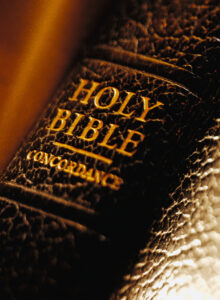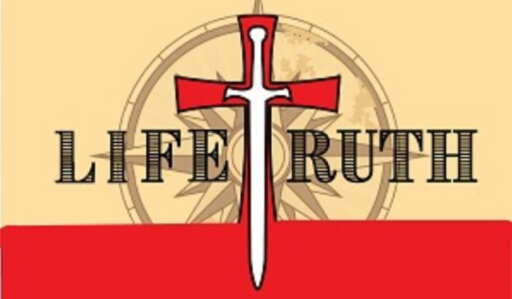Jesus arrives at the feast and preaches in the temple about the authority of his teaching. The religious leaders are frustrated, and the crowd is split on deciding whether he is Messiah or not.
John 7:14-27

Jesus had delayed in coming to Jerusalem. He now makes an appearance in the middle of the week of festivities. Not hiding at all, he goes right to the temple to teach. The Jews, particularly the religious leaders marveled at his depth of understanding scripture. Jesus was an untrained man, not from their familiar schools of thought.
Similar to his statements in the previous chapter, Jesus points to a higher source for his authority. This source of understanding didn’t originate in other people. It didn’t come from books or even from within him. His understanding of the word came from the author of that word. He came to glorify the one who sent him,
For those who are willing, and the intentional choice made to listen to the truth, it is easy to understand where the authority behind Jesus comes from. God’s truth is discernable from the knowledge of mankind. A step of obedience is required. Whose truth are you faithful toward?
Whoever the source of knowledge is, that is who is being glorified. Is it yourself, a school of thought, or a philosophy? Is it God’s truth and authority?
Jesus tries to connect with something the audience would know, Moses’ law. He specifically points out a command being broken, trying to kill him. Whether stated or not in John’s gospel, Jesus knows their heart and unspoken motives.
A quick review. Jesus delayed coming to the mandatory feast after his brothers urged him to come to reveal himself. He did it quietly and in his own time. Verse 11 states the Jews were seeking him, and It wasn’t for good intentions. People in the crowd had grumbled and were split on whether Jesus was good or bad for the nation.
There’s no record in this passage on the deed that Jesus did to upset the Jews. In the previous chapter, Jesus taught the controversial idea of being the bread from heaven. In the 6 months since his sermon on being the Bread of Life, he probably taught and healed many times, even on the sabbath. The last time John places him in Jerusalem, he cleared the temple.
All in the crowd were not in on a murder plot. But whether they were innocent bystanders, or guilty of a murderous plot, wouldn’t you say the same thing they did? “You’re nuts! You have a demon! You’re crazy! Who wants to kill you?”
Again, John doesn’t record all of the healings and teachings of Jesus. The response Jesus gives points to a particular deed. He qualifies his response with something the Jews would know well, and hold dear. The reference to Moses and circumcision, something considered holy enough to do on a sabbath. This leads us to believe the deed had to do with something Jesus did on the sabbath. The one event John records were the healing of the paralytic in chapter 5.
Circumcision removes something. Jesus made a man whole again. Isn’t healing a body to make it whole again a higher work? Don’t base your response of judgment on a favored doctrine or practice. Don’t allow yourself to fall back onto a surface appearance or cherry-picking favorite teachings. Righteous judgment can be known in a practical way and the world of reality.
The crowd at large is divided from the religious elite. Not knowing the motives of their leaders. The crowd is evenly divided among themselves, identifying him as the targeted man. . Those were likely afraid of the leadership, not caring to form an opinion on Jesus
Others in the crowd were willing to think for themselves as they got mixed signals. Jesus has the green light to speak in the temple. He’s approved, right? The leaders aren’t stopping him. The leaders don’t know that he’s the Messiah, do they? The undecided, innocent bystanders had some doubts showing. They’re on the fence.
The crowd tried to make their judgment call, drawing on a misunderstood prophecy. They claimed, “We know where this man is from. Galilee! Nazareth!” Is he? How obscure is Nazareth? Even Jesus’ disciples had to come to grips with the concept. John 1:46 Nathanael said to him,
“Can any good thing come out of Nazareth?” Philip said to him, “Come and see.”
Jesus may have been from there geographically, but spiritually, he came out of nowhere. His authority was out of this world. We know where he is from. Jesus is the bread from heaven. He is sent from above. Can anyone know where that is, or what it’s like?
In the next session, we look into the response Jesus gave to the crowd.

Credits
consider supporting the podcast through our Patreon page.
feel free to drop us an email, use the comments on the show note page, or call our voicemail at (401)753-4844.
Follow us on social media, and join us in what we’re doing there.
Twitter: @HPNCast
Facebook Page: @LifeTruthPage
Facebook Group: HPNCast Community

Thanks to the recorded comments from J Vernon McGee. His ministry and daily bible study lives on through Through the Bible Ministries (ttb.org)
Scriptures in the show notes and episode are quoted from the King James Version, except when read by Keith, then it’s the NASB.
“Scripture taken from the NEW AMERICAN STANDARD BIBLE®,
Copyright © 1960,1962,1963,1968,1971,1972,1973,1975,1977,1995
by The Lockman Foundation. Used by permission.”
Podcast: Play in new window | Download (Duration: 36:04 — 33.0MB)
Subscribe: Apple Podcasts | Amazon Music | Podchaser | RSS | More
